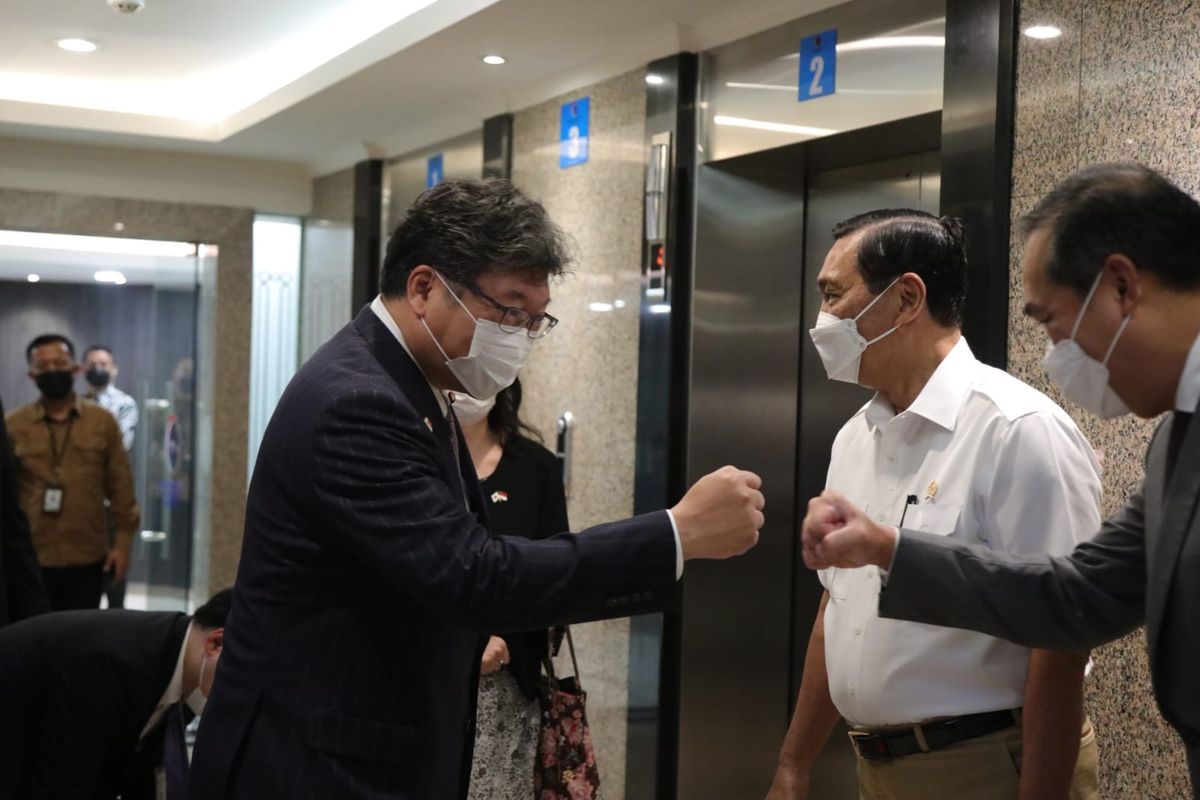Japan Thanks Indonesia for Scrapping Coal Export Ban

JAKARTA, KOMPAS.com – Japan’s Industry Minister Koichi Hagiuda has applauded the Indonesian government for lifting its one-month ban on coal exports, which was imposed on Jan. 1, to avoid outages at domestic coal-fired power plants.
“I appreciate the detailed explanations provided by the Indonesian government on the ‘release’ of coal exports,” said Hagiuda in a press statement on Tuesday, Jan. 11.
Japan is one of the big customers for Indonesian coal exports. The Southeast Asian country is the world’s top exporter of thermal coal, supplying around 400 million tons in 2020 to various countries. The coal export ban causes a serious impact on Japan’s economic activities as well as people’s daily life.
Also read: Indonesia to Ease Restrictions on Coal Export Ban
Hagiuda brought up the coal export ban during his meeting with Indonesia’s Coordinating Minister for Maritime Affairs and Investment Luhut Binsar Pandjaitan in Jakarta on Tuesday.
Also in the meeting, both ministers discussed issues on possible cooperation in various sectors, such as eco-friendly energy sources, fisheries, environmental, and petrochemical industry.
Hagiuda explained the development of Japan's investment in the ammonia industry in Teluk Bintuni in West Papua and Japan’s interest in the development of batteries for solar power plants.
Meanwhile, Luhut also called on Japan to invest in the construction of a hydroelectric power plant in Kalimantan, which has produced 11,000 megawatts of electricity.
Also read: Japan Calls for Indonesia to Revoke Coal Export Ban Immediately
“In December last year, President Joko Widodo inaugurated the groundbreaking of a 30-hectare green industrial park,” said Luhut.
Luhut said that Indonesia had changed in the past seven years following the development across the country.
He highlighted the downstream industry for nickel that focuses on stainless steel, a component for lithium battery manufacture. He assured that Indonesia has a very large stock of nickel ore with a total upstream production capacity of up to 12 million tons per year. “The downstream industry has changed the structure of the Indonesian economy, reducing its reliance on raw commodities,” he said.
(Writer: Ade Miranti Karunia | Editor: Akhdi Martin Pratama)
Simak breaking news dan berita pilihan kami langsung di ponselmu. Pilih saluran andalanmu akses berita Kompas.com WhatsApp Channel : https://www.whatsapp.com/channel/0029VaFPbedBPzjZrk13HO3D. Pastikan kamu sudah install aplikasi WhatsApp ya.






























